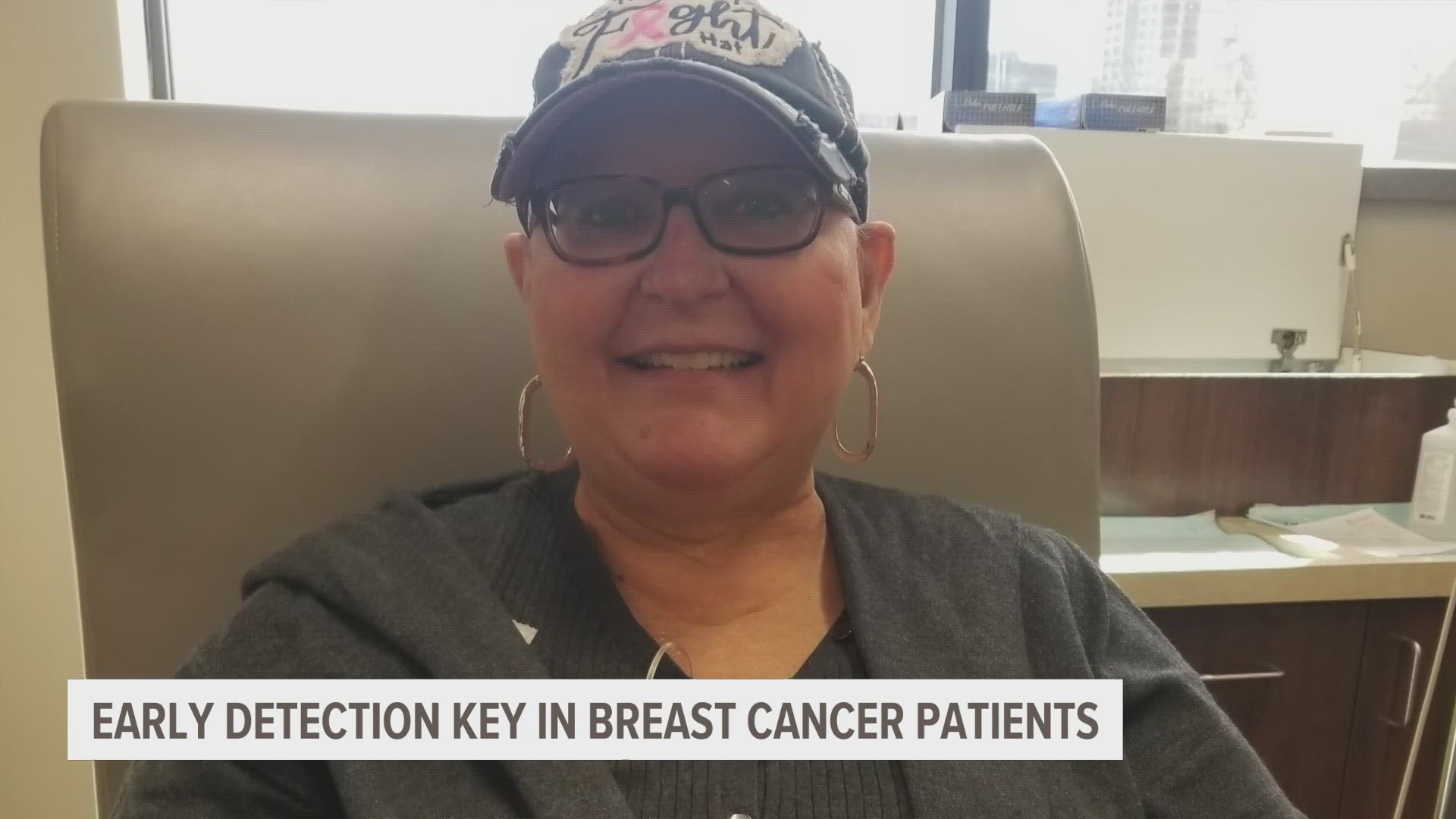DES MOINES, Iowa — According to the American Cancer Society, nearly 13% of American women will develop breast cancer in their lifetime.
Urbandale resident Julie Wolfe never thought she’d been one of them.
"It does not run in my family, so it was kind of out of the blue," Wolfe told Local 5.
In May of 2022, Wolfe received her diagnosis: Triple negative breast cancer, an invasive and aggressive form of the disease.
Twelve rounds of chemotherapy, a double mastectomy and several radiation treatments later, however, the best news for Wolfe and her family.
“In December [of 2022], I had an MRI. And they called me within an hour and a half and said, 'We’re pleased to tell you that there’s no tumors,'" Wolfe said. "The chemo worked."
Wolfe credited her dedicated team at Unity Point Health's John Stoddard Cancer Center with the success of her treatment now that her scans are clear. But more than anything, she says annual screenings and early detection are what ultimately saved her life.
“Having that early detection … I really think starting my annual mammograms and getting into that routine and embedding that into my routine was critical," Wolfe told Local 5.
Early detection is what lead to not only Wolfe’s diagnosis, but those of so many other women across the country, according to Unity Point Health Radiation Oncologist Dr. Sam Schroeder.
“Early detection is so key in this. So if you can detect something sooner, than later, you have a high probability of taking care of it," Schroeder said.
Key technological advancements also helping doctors treat more women and improve outcomes for patients.
"There are new technologies, whole body pet scans for hormone receptor breast cancers called Cerianna," Schroeder said. "I believe we are the first center in central Iowa to offer this, and so this allows us to find areas that just weren't possible before."
Both doctors and patients also agree that getting screened is the best way to stay on top of your health as a woman.
"If someone hasn't had their mammogram in a while, go make that appointment," Wolfe said. "Having that peace of mind that you're okay and you don't have to go through what other women have gone through with breast cancer is so important."

